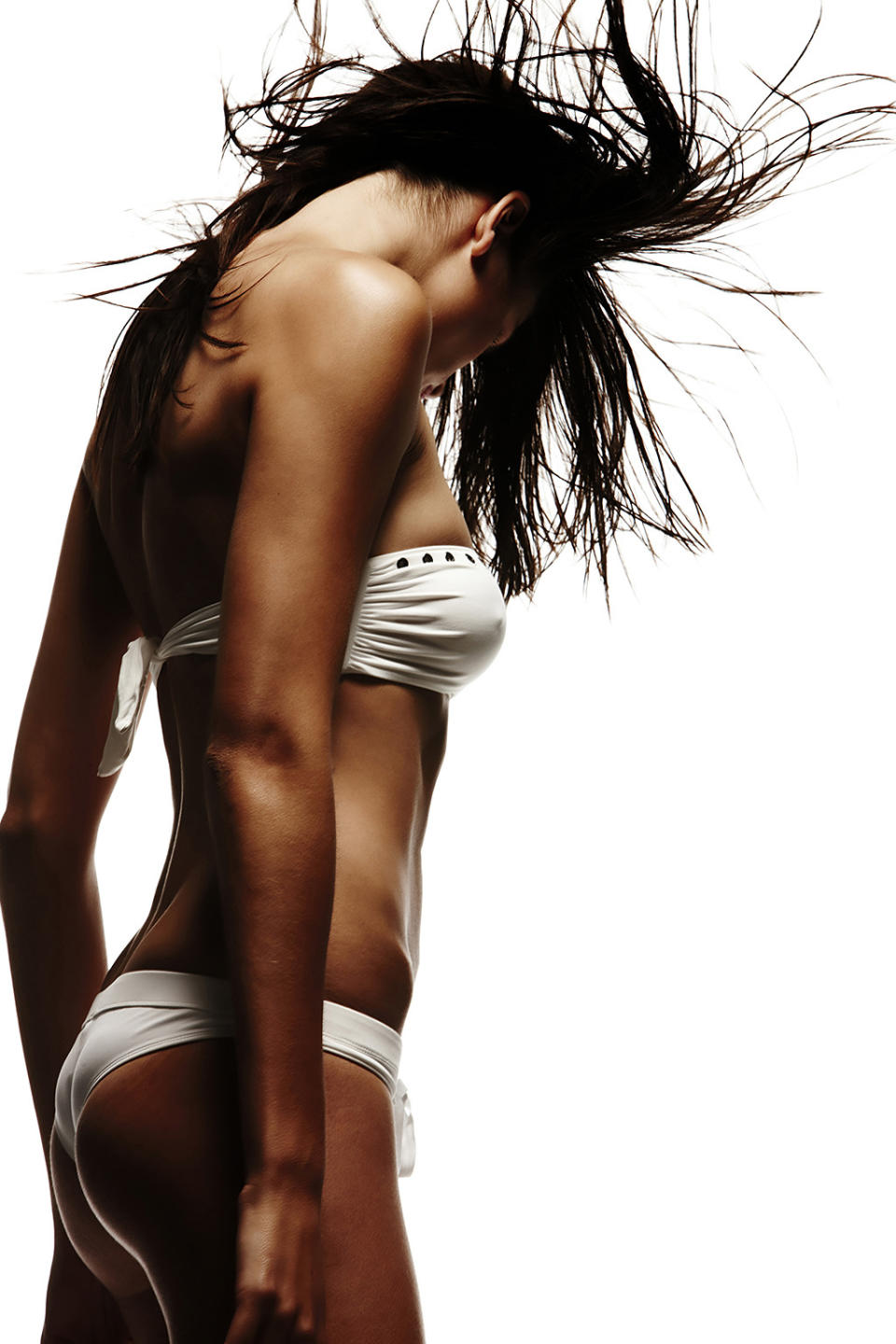Is Skinny Tan Offensive or Genius?

A new self-tanner promises to make you look “skinny,” but what message does that send? (Photo: Gallery Stock)
An all-natural self-tanner with “firming actives,” invented by two female entrepreneurs in the United Kingdom, will be making its stateside debut very soon. According to a recent WWD report, Skinny Tan has become a hot commodity in other regions like the U.K., Korea, and Australia, and the founders are hoping to replicate that success with American consumers.
The inventors, Kate Cotton and Louise Ferguson, initially won support for Skinny Tan from two investors on the U.K.’s Dragon’s Den (much like ABC’s hit show Shark Tank). Australian company InnovaDerma followed suit, buying a significant stake in the company. Today, Skinny Tan’s daily sales regularly top $35,000 — products range in price from $29.95 for the basic self-tanner to $54.99 for larger self-tanning kits.
Since there is basically no competition for Skinny Tan — no other brands are currently selling a hybrid self-tanner and anticellulite formula —Ferguson told WWD that the potential is endless. “When we invented the first natural tanner with firming actives, I never imagined how successful it would be even in my home country,” she said. “To be bringing it to the USA is an absolute dream.”
We weren’t sure how to feel about a self-tanner that promised us “skinny” effects — amazing new technology but perhaps a disconcerting message — so we asked a couple of experts. Confidence expert Jess Weiner, CEO of Talk to Jess, is not surprised by Skinny Tan’s branding and marketing angle.
“We can’t forget we saw Bethenny Frankel used the word skinny to describe her line of products like margaritas, and it made a huge profit,” Weiner tells Yahoo Beauty. “Because the term skinny is still an aspirational attribute some women value, it does not surprise me that a brand wants to use the term associated with spray tans — especially because, as women, we’ve been told that having a tan makes you appear thinner.”
Weiner says that the implicit message is something a bit more detrimental to women’s self-esteem and well-being. “It’s a promise for a momentary connection to a body image that isn’t at all about true connection to yourself,” she says. “It’s merely a ‘quick fix’ to get a result that isn’t about a woman’s true value but solely her appearance to others and tapping into the insecurity that we still know women feel about their bodies. It’s the term skinny that reinforces, in a consumer’s mind, that this is the preferable way to be in the world. Whether the shopper realizes that or not, this is what contributes to the brainwashing and normalizing of an overly idealized image of beauty as it pertains to being thin.”
Karla Ivankovich, PhD, a counselor and professor of psychology at the University of Illinois, Springfield, agrees that Skinny Tan is reinforcing societal ideals over self-acceptance. “But to change this means that, at some point, society will fully embrace self-acceptance,” Ivankovich tells Yahoo Beauty. “That is unlikely to happen. Women have an insatiable appetite for beauty products and ideas — because beauty is still defined at the societal level. Point being, the beauty and fashion industries have historically worked to create products that accentuate the female form.”
According to Ivankovich, “there will never be enough” products like push-up bras, Spanx, waist-trainers, or techniques like makeup contouring and body-firming self-tanners. “If society deems it beautiful, someone will create a product to accentuate that area,” she explains.
That said, both Weiner and Ivankovich say there’s nothing wrong with wearing and using products like Skinny Tan if it makes you feel good. “Remember that self-esteem is a perception held by the individual,” Ivankovich says. “So if she perceives herself to look better, she feels better, and her confidence improves — and there is so much literature to support self-confidence and its many benefits.”
If you feel more confident, by all means: wear the shapers, self-tanners or makeup, says Weiner. “But it’s a fine line to walk, knowing that we are altering our appearance to be more pleasing to a societal standard of beauty — and when the shapers come off and we wash away the makeup or tan, our skin is still there, lumps and all,” she says. “We can’t escape that. So it’s important that any woman who is spraying on a tan, contouring her face, or wearing a shaper is also conscious that her real value in being a woman isn’t just in her appearance.”
Let’s keep in touch! Follow Yahoo Beauty on Facebook, Twitter, Instagram, and Pinterest.

 Yahoo News
Yahoo News 